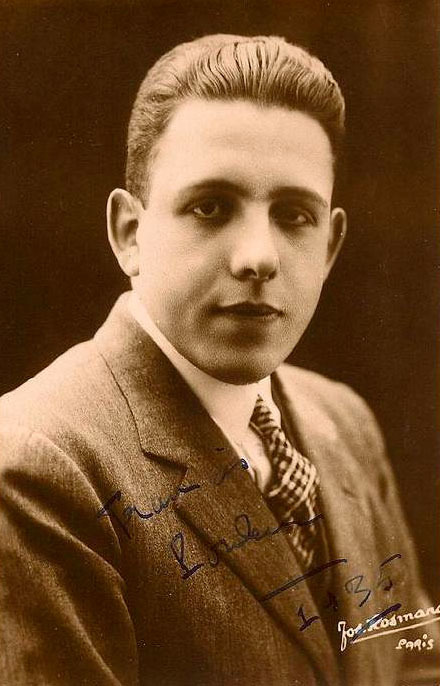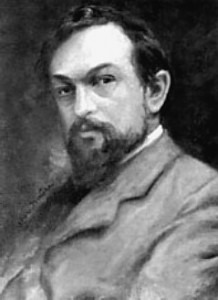
Francis Poulenc
Francis Poulenc: Rapsodie nègre
Written for baritone, piano, string quartet, flute, and clarinet, and setting nonsense syllables purportedly by a black Liberian poet, Poulenc’s Rapsodie nègre of 1917 kept the composer out of the Parisian Conservatoire. The composition teacher Paul Vidal remarked, “your work stinks, it’s inept, infamous balls…Ah! I see you’re a follower of the Stravinsky and Satie gang. Well, goodbye!” Yet his first musical love was not Satie nor Stravinsky, but at the age of eight, Poulenc first heard Claude Debussy’s Danse sacree et danse profane for harp and string orchestra.
Claude Debussy: Danses sacree et profane

Claude Debussy
Francis Poulenc: Piano Sonata 4 hands
When Poulenc discovered the score of Franz Schubert’s Winterreise at a shop, “I went from magic moment to magic moment. I discovered all at once the beauty of the country, the winter, and the sublime musical transmutation. I played and replayed without stopping the astonishing “Soleil d’Hiver” (Die Nebensonnen, The Mock Suns.) Without doubt, this remains for me the most beautiful art song in the world.”
Franz Schubert: Die Winterreise, “Die Nebensonnen — The Mock Suns”
Schubert’s influence none withstanding, Poulenc’s musical language of song also mirrored the world of popular music, found in the cabarets and dance halls of Paris. “Imagine,” he reports, “at sixteen I was fascinated by a friend one year older than me. He was a boxing champion and lover of a boot seamstress. This young woman, quite attractive besides, had a sister, who sold feathers and was just as pretty as she. All four of us frequented the cafes concerts and theaters of the quarter.”
Francis Poulenc: Les mamelles de Tiresias, Act 1: “Non, Monsier non mari”
Please join me next time when we look at Poulenc’s engagement with the music of Eric Satie, Igor Stravinsky and the deeply personal world of Catholic spirituality.
